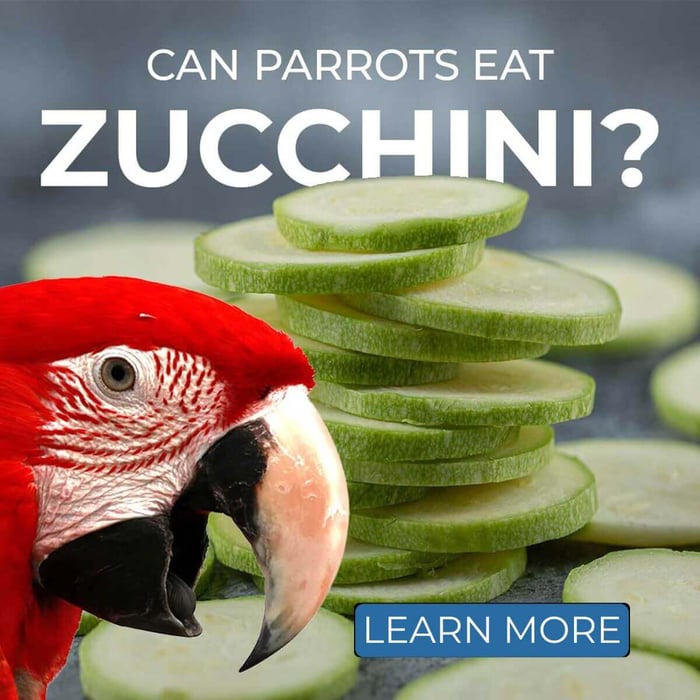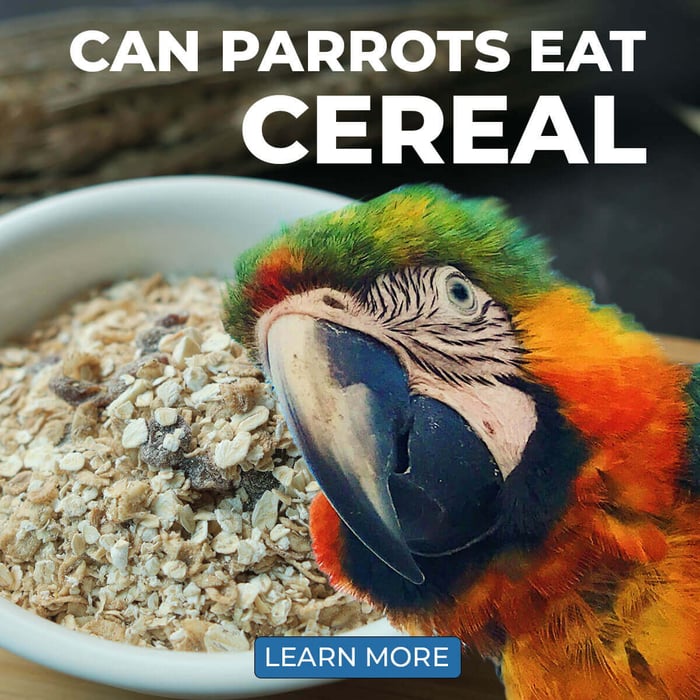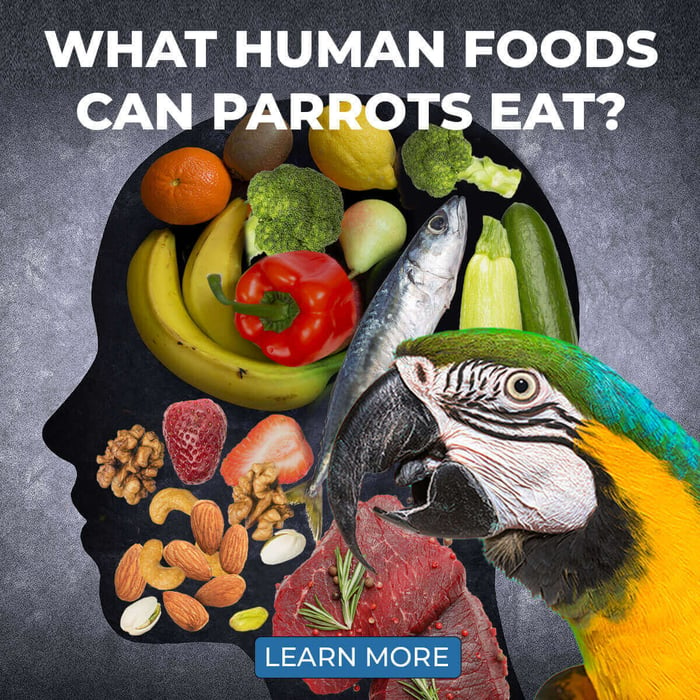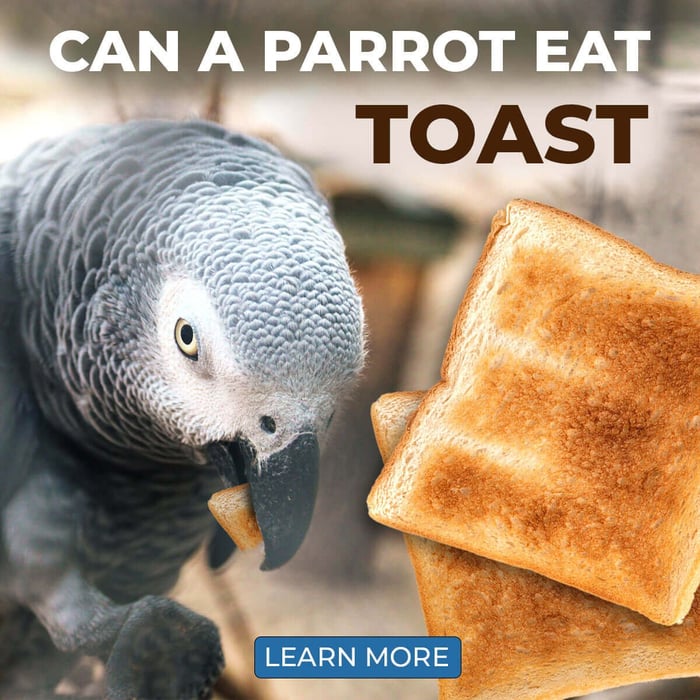What Are The Best Foods for Small Parrots?
If you’ve recently adopted a small feathered friend, or you’re thinking about adding a small parrot to your family, understanding your new pet’s diet is key. There are many different types of food and brands available. But what should your bird eat? What are the best foods for small parrots?
We’ve put together this guide outlining the best foods for small parrots to help you decide what foods are right for your bird.
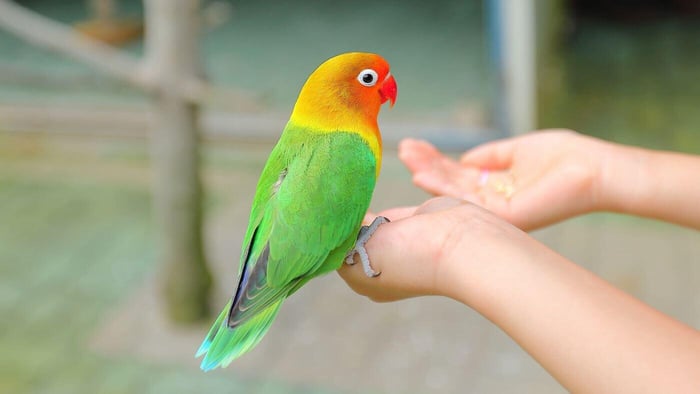
Best Pellets for Small Parrots
The majority of a small parrot’s diet should consist of high-quality pellets. These mixes are a complete food that provides your parrot with most of the vitamins and nutrients it needs.
Not all parrot pellets are created equal, however. You’ll need to choose ones that are made from high-quality ingredients and the right size for your small bird. Here are a few of the best pellet options that are safe as well as healthy for your small parrot:
Askio Nature Complete Parrot Food
Askio Nature offers a range of parrot food, including complete parrot food for parakeets and small parrots. They understand the importance of a natural diet, and their parrot food is made from 100% GMO-free, toxin-free, and cholesterol-free natural ingredients.
Their Bird Food range is enriched with added vitamins and minerals that help promote vitality in pet birds. Askio Parrot Food is free from artificial colours, flavours, fragrances, and preservatives, which aligns with their promise of delivering only the best for your companion parrots. You can choose from Askio Small Parrot, which is available in both Natural or Fruit & Vegetable Blends. They also have Budgie-tailored or Xsmall diets.
Harrison’s Adult Lifetime — Super Fine
All pellets from Harrison’s Bird Foods are made from 100% organic ingredients and premium, human-grade whole grains like corn, barley and oats. They also contain veggies and legumes, like green peas, alfalfa and lentils. The pellets are free of artificial pesticides, fertilisers, and preservatives.
This pellet food is super fine. The small grains are the perfect size for small companion birds like budgies, canaries, cockatiels, finches, and lovebirds.
Lafeber NutriBerries for Small Parrots
Lafeber NutriBerries consist of a mix of seeds like millet, oats and canary grass, plus high-quality pellets. They’re made with nutritious, natural ingredients that are rolled into round balls, making your bird’s meals more fun and keeping it busy eating for longer. The berries are also coated with vitamins and minerals. According to LaFeber, each berry contains the 40 essential nutrients that your bird needs!
Because these are made for small parrots like budgies, cockatiels and lovebirds, the berries are small enough for your feathered friend to enjoy safely and eat with ease.
TOP’s Parrot Food — Mini Pellets
Another great organic and natural pellet option, TOP’s USDA organic-certified mini pellets are the perfect size and shape for small parrots. Ideal for budgies, cockatiels, lovebirds, parrotlets, rosellas and all the other parrots that aren’t large enough to eat regular pellets!
Made from human-grade ingredients, these pellets are manufactured using a cold-press process to lock in vitamins and nutrients. They’re also free of any fillers like soy, corn, and ethoxyquin. Instead, they contain nutritious alfalfa, barley, rice and healthy additives like rosehip, rosemary and nettle leaf.
Hagen Hari Tropican Cockatiel Lifetime Granules
Last on the list but certainly not the least when it comes to quality, Hagen Hari’s small Tropican pellets are marketed for cockatiels but will work fine for most types of small parrots. This company, which is based in Canada, actually has its own avian research facility: the Hagen Avicultural Research Institute (or HARI, hence the name!).
This lifetime formula contains a balanced mix of ingredients, including multiple sources of protein for healthy feathers and plenty of calcium and omega fatty acids. The pellets are free of artificial preservatives, colourings and flavourings, so they’re the perfect choice if you’re looking for something natural.
View The Full Range of Small Parrot Pellets
Vegetables
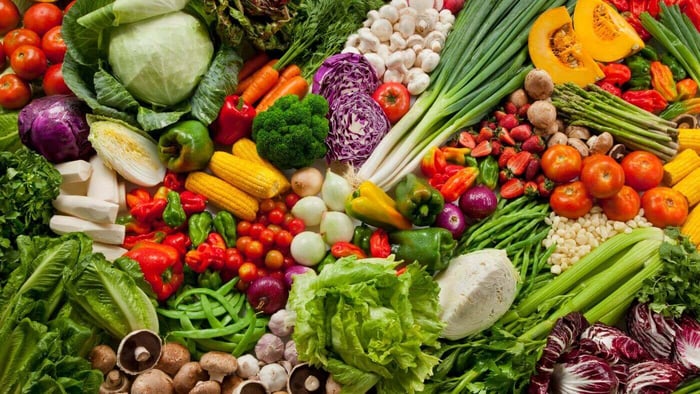
While up to 75% of your small parrot’s diet should be pellets, the rest should consist of fresh, nutritious foods like vegetables. Most small parrot species wouldn’t naturally have access to a lot of vegetables in the wild, but domestic birds can take advantage of these low-calorie, nutritious snacks. Plus, it’s easier than going out and finding flower buds, leaf shoots, wild fruits and native tree seeds for your bird to eat!
Most vegetables are safe for your small parrots to consume, but some are better than others. Dark, leafy greens like kale and spinach are high in antioxidants, and they’re easily torn apart by small birds.
Other great vegetable options include:
- Cucumber
- Carrot
- Broccoli
- Bell peppers
- Celery
- Peas
- Green beans
- Zucchini
When feeding your small parrot a new vegetable, you may need to start them off with small pieces at first until they warm up to the new food. After this, you can offer most veggies in large chunks to stimulate foraging behaviour and keep your bird busy eating for longer. You can even skewer them on a kabob treat holder!
Fruits
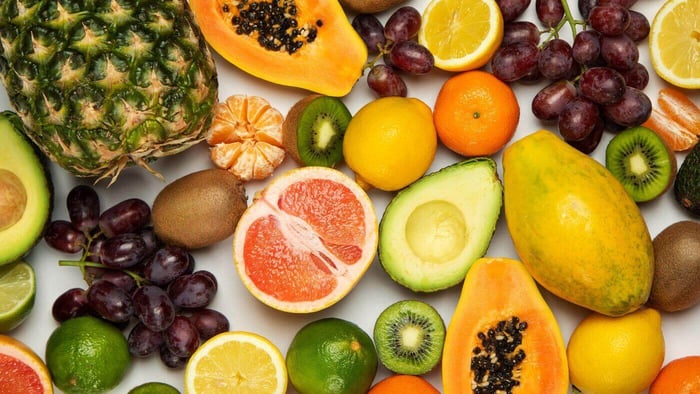
While fruits offer valuable nutrition for your small parrot, they should be fed in moderation because of their high sugar content. After all, most of the fruit we have access to was cultivated for humans. It’s much more sugary than the wild, often unripe fruits your bird would have access to in the wild.
As such, unlike with vegetables (which can be fed to your feathered pets daily), consider adding fruit to your bird’s diet only a few times per week.
Most fruits, like vegetables, are safe for your small parrots to consume. The most notable exception is avocado, which has been shown to be highly toxic to parrots. The more acidic citrus fruits, like lemon and lime, can also be harsh on your bird’s stomach. It’s best to avoid those as well.
Your small parrot is likely to love:
- Bananas
- Apples
- Grapes
- Strawberries
- Blueberries
- Cherries (without the pit)
- Kiwi
- Peach
For some fruits, like grapes, you’ll want to cut them open to make it easier for your small parrot to eat them. Most other fruits can be fed in larger chunks.
Seeds
While many believe that an all-seed diet is enough for small parrots to live on, seeds are actually high in fat. This can lead to obesity and health issues if your bird consumes too many of them. Keep in mind that our domestic birds simply don’t move around as much as their wild counterparts. This means they also need fewer calories! Parrot seed mixes are also generally not very varied, although their nutritional profile can be improved drastically by sprouting them.
Seeds can still be a valuable part of your bird’s diet and should be included, especially for natural seed eaters like budgies and cockatiels. However, it’s best to feed them in moderation. A small amount a few times per week is great.
You can go for a high-quality seed mix for small parrots. A brand that’s mostly free of sunflower seeds is best, as these are high in fat and best offered as treat foods. Your bird will also much appreciate the occasional millet spray.
Treats
Pellets, seeds, fruits, and vegetables should make up almost all of your small parrot’s diet. However, an occasional treat is a great way to add fun and variety to your bird’s food. Treats also come in handy for training, as positive reinforcement using food works exceedingly well with parrots.
For low-calorie treats, parrots often enjoy grass seed and weeds like dandelion and clover. They also appreciate hibiscus and chamomile, as well as branches and leaves. Eucalyptus leaves, for example, are very popular with budgies, who nibble on them in their natural habitat to soothe their digestive systems.
In addition to flowers and weeds, nuts are another great treat to add to your bird’s diet, although they should be offered in moderation or just used as training treats due to their high-fat content. Nuts should be fed raw and plain — never with any salt or seasonings.
A few great nut options for your small parrot include:
- Cashews
- Walnuts
- Pecans
- Macadamias
- Peanuts
- Pistachios
For large nuts like walnuts, remove the nut from the shell or help your bird by breaking the shell into small pieces. You should also always inspect the shells of nuts, such as peanuts and pistachios, before giving them to your bird. They can occasionally grow mould if not kept in dry conditions.
Herbs are also another great option for fun extra treats to give your bird. Consider small amounts of basil, mint, or fennel leaves if you can find them available. You can even offer various spices!
So, What Are The Best Foods For Small Parrots?
There are a wide variety of foods available on the market for small parrots, so it can be difficult to know what the best choice is for your bird. However, as long as you keep in mind that the key to a good bird diet is variety, you’re already halfway there!
Start with a foundation of high-quality pellets with good ingredients that are low in fillers, like soy—the options listed above are great choices. From there, supplement your bird’s diet with whatever vegetables, fruits, seeds and other snacks you can find.

